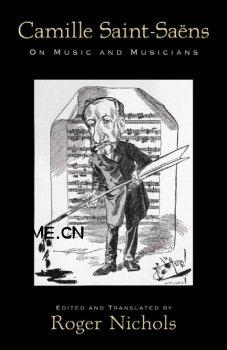English | Publisher: Oxford University Press, 2008 | 200 Pages | PDF | 6 MB
英文简介:
Camille Saint–Sa?ns is a memorable figure not only for his successes as a composer of choral and orchestral works, and the eternally popular opera Samson et Dalila, but also because he was a keen observer of the musical culture in which he lived. A composer of vast intelligence and erudition, Saint–Sa?ns was at the same time one of the foremost writers on music in his day. From Wagner, Liszt and Debussy to Milhaud and Stravinsky, Saint–Sa?ns was at the center of the elite musical and cultural fin de siecle and early 20th Century world.
He championed Schumann and Wagner in France at a period when these composers were regarded as dangerous subversives whose music should be kept well away from the impressionable student. Yet Saint–Sa?ns himself had no aspirations to being a revolutionary, and his appreciation of Wagner the composer was tempered by his reservations over Wagner the philosopher and dramatist.
Whether defending Meyerbeer against charges of facility or Berlioz against those who questioned his harmonic grasp, Saint–Sa?ns was always his own man: in both cases, he claimed, it was “not the absence of faults but the presence of virtues” that distinguishes the good composer. Saint–Sa?ns’ writings provide a well-argued counter-discourse to the strong modernist music critics who rallied around Debussy and Ravel during the fin de siecle.
And above all, they demonstrate a brilliantly sharp and active brain, expressing itself through prose of a Classical purity and balance, enlivened throughout with flashes of wit and, at times, of sheer malice.
官网: http://www.oxfordscholarship.com/view/10.1093/acprof:oso/9780195320169.001.0001/acprof-9780195320169







评论0